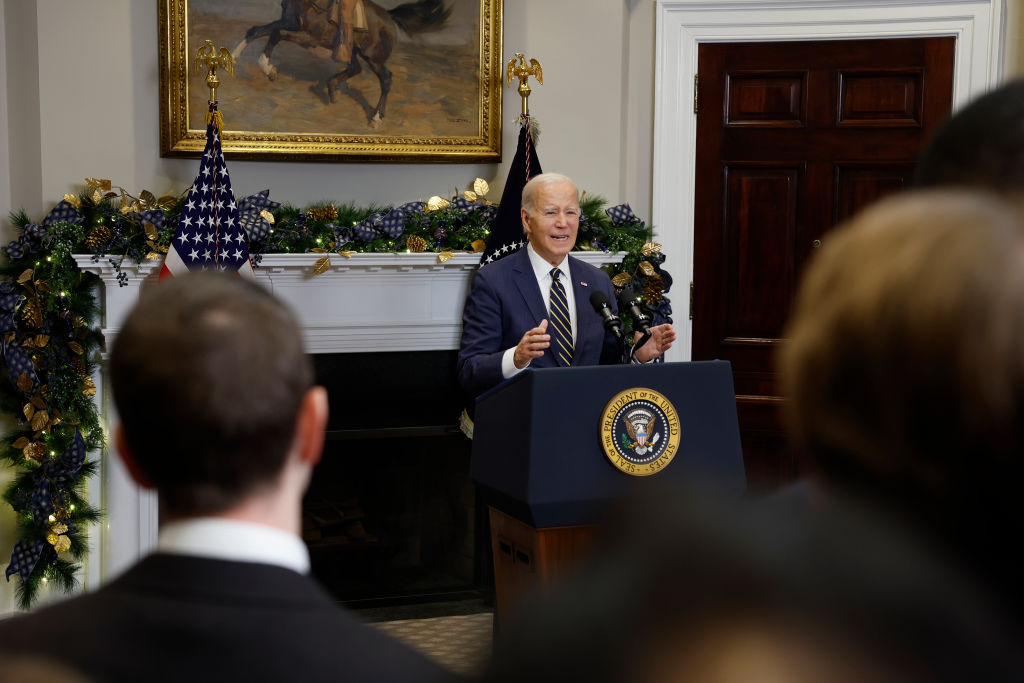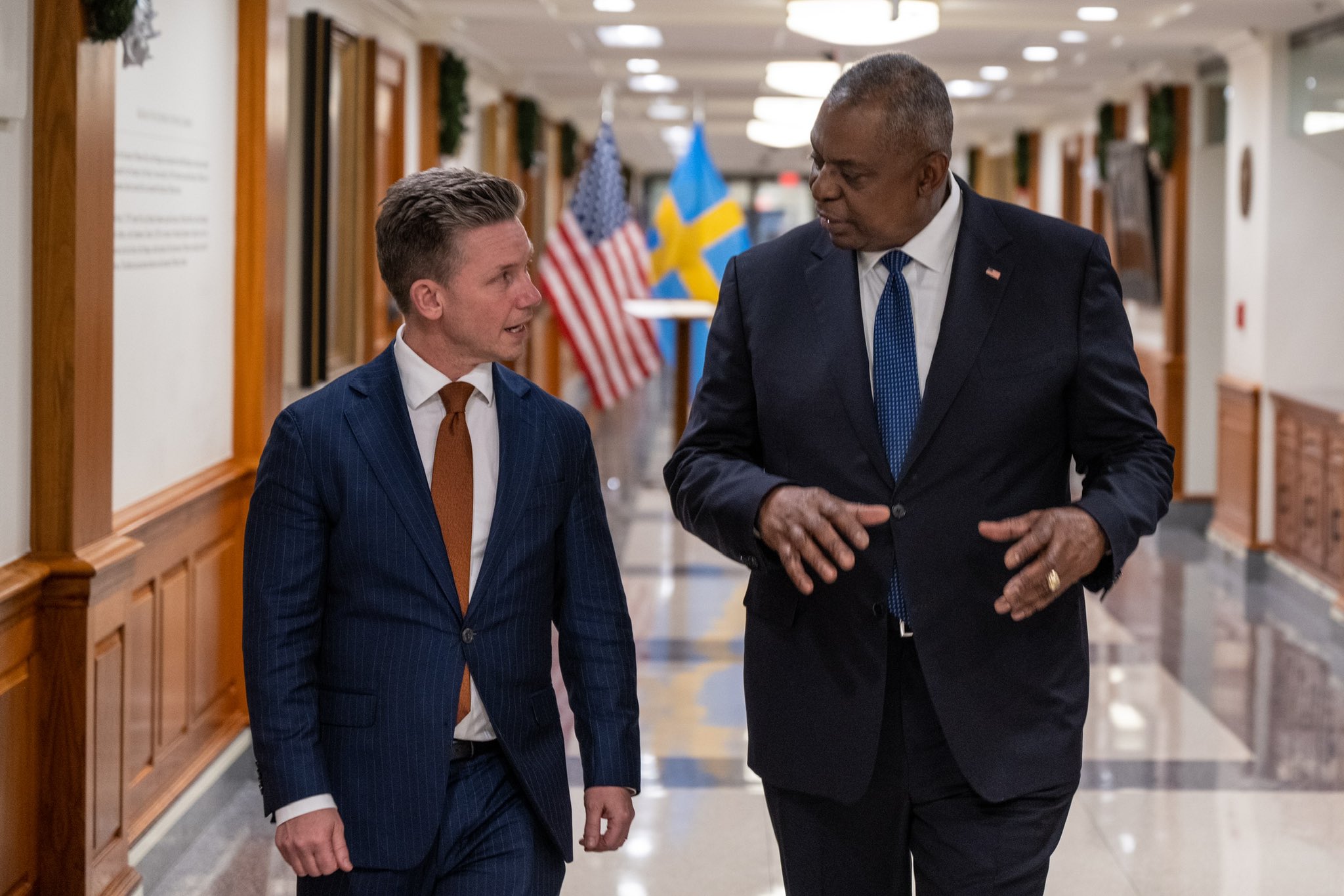Late in the night from December 6 to 7, U.S. President Joe Biden directly termed the actions of Republican congressmen as political blackmail, accusing them of exposing the world to excessively high risks. Simultaneously, he proposed a compromise regarding the security program for the southern border of the U.S., a demand pushed by Republicans. This was the President’s response to the halt in discussions on the law regarding the funding of security aid to Ukraine, Israel, and several other countries. Republicans are insisting on substantial funding for the program to fortify the U.S. southern border to curb illegal migration through it. Voices of experts are already echoing, asserting that the two weeks remaining before the Christmas holidays are insufficient for the passage of this crucial bill through Congress. Although the deadline for resolving the federal budget issue is January 19, the funding for Ukraine is urgently needed now, according to the American President. He explicitly states that delay is a gift to Putin.
The United States has announced a new package of weapons and equipment to support the people of Ukraine, defending their country and freedom from Russian aggression, as reported by the State Department on December 6. In the same announcement, it is mentioned that this may be one of the last aid packages from the U.S. to Ukraine in the security domain if Congress does not approve the President’s request for additional funding for national security.
This package, utilizing limited resources available for assistance to Ukraine, includes up to $175 million in the form of arms and equipment within predefined cuts. It specifies ammunition for anti-aircraft defense, additional ammunition for HIMARS, artillery ammunition, high-speed anti-radiation missiles, anti-tank missiles, ammunition for small arms, and much more.
The Biden administration emphasizes, in providing this package, that assistance to Ukraine in defending against Russian aggression and securing its future serves the interests of U.S. national security and contributes to global stability worldwide. Congress is urged to act promptly. The announcement underscores once again that the ultimate goal of this U.S. support for Ukraine is to halt Russian attacks and withdraw Russian forces from Ukraine.
In essence, this latest support package is not only a tangible contribution to Ukraine’s resistance against Russian aggression but also a kind of message to Congress, which, hopefully just temporarily, slowed the approval of a security law specifying support levels for Ukraine, Israel, and several other countries.
“Republicans in Congress are threatening to cut off support for Ukraine unless they can force through their extreme partisan border policies. It’s political blackmail, pure and simple. The stakes are too high and the consequences are too significant for political brinksmanship,” wrote Joe Biden on Twitter a little later after midnight today.
In doing so, he marked the severity level of the problem and the controversies surrounding it. “Don’t give gifts to Putin,” he said an hour before in a previous tweet.
Budget disputes happen almost every year in Washington, but this time, as Joe Biden rightly noted, the stakes are too high. So why has the problem reached such an impasse?
Migration Crisis Unfolds
On the eve of the unsuccessful vote on the discussion procedure for the security aid funding law, the Customs and Border Patrol revealed that 12,000 migrants were discovered at the border on December 5. This staggering figure represents the highest count in recorded history.
So, it’s evident why the votes fell short in the Senate to halt debates on the international aid package bill. On Wednesday, December 6, 51 senators, including 49 Republicans, one independent (Bernie Sanders), and one Democrat (Senate Majority Leader Chuck Schumer) voted against ending debates on the international aid package bill.
What exactly do Republicans demand regarding the border issue? Halting the surge of illegal migrants from the south and suppressing drug smuggling are their primary concerns.
The primary concern of Senate Republicans is that, in their view, Democrats are not taking the Border Supplemental seriously enough. Although many Republicans want to support a package that includes aid to Ukraine, in the House of Representatives, the number of conservatives unwilling to do so is rising. This forces Republicans to raise the stakes on border security.
Republicans would prefer to ensure both legal and physical factors in immigration restraint, strengthen rules allowing migrants to stay in the U.S., and enhance penalties for illegal entry. Alongside uncontroversial provisions such as increasing the number of border patrol agents, the House proposal also includes several points that are not a priority for Democrats, reinstating a series of Trump-era policies, such as resuming border wall construction and implementing a strict asylum process, expedited release, and detention policies.
The slogans Republicans had in 2016 during the races were not fully realized. However, the issue of migrants and drug trafficking is a sore point for the U.S. domestic agenda, making it highly noticeable for Republicans in the 2024 races.
Not a dead end but a reboot
In the first days of December, the White House is pushing even harder for the urgent adoption of an additional package, writing to Congress leaders that the U.S. will run out of funds for aid to Ukraine by the end of the year. But House Speaker Mike Johnson (Republican) responded quite firmly to the White House, saying that additional funding for Ukraine depends on “transformative changes in our country’s border security laws.”
On the evening of December 6, President Joe Biden stated that he is ready to make “significant compromises” regarding the border. The White House plan, considered more challenging for reforming and improving the system handling arriving immigrants, involves adding elements such as judges and asylum officers, investigative teams, and detention facilities. It seems as if this is about securing funding for an additional 1,300 border agents, 100 inspection machines for detecting fentanyl, 1,600 additional asylum officers, and 375 new immigration judge teams.
Likely, this will unlock the $111 billion presidential security project, including $60 billion in aid to Ukraine itself. As already noted, on the table are the interests of U.S. national security and global stability.
Source: The Gaze







